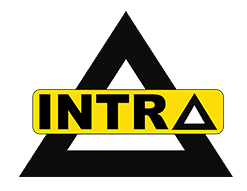2. Prehospital neurological emergencies– a survey on the state of prehospital neurological assessment by emergency medical professionals
CEUs: 2 Clinical
Average read time: 25 to 30 minutes
Short Summary of the Article:
The article titled “Prehospital Neurological Emergencies: A Survey on the State of Prehospital Neurological Assessment by Emergency Medical Professionals” investigates the current practices and challenges faced by emergency medical service (EMS) personnel in managing neurological emergencies. The study is based on a survey conducted among paramedics, EMTs, and emergency physicians, focusing on their confidence and knowledge in diagnosing conditions such as stroke, seizure, and other neurological disorders in prehospital settings. The findings highlight a need for better training, the standardization of assessment protocols, and the integration of telemedicine to enhance care quality and patient outcomes.
Learning Outcomes
Upon completion of this activity, you should have an understanding of:
- Challenges in Neurological Assessment: The difficulties EMS professionals face in distinguishing between types of neurological emergencies, such as ischemic stroke and intracranial hemorrhage, and how these affect patient outcomes.
- Need for Standardized Training and Protocols: The importance of implementing uniform neurological assessment guidelines and training to ensure that EMS professionals can confidently assess and manage neurological conditions in both adult and pediatric patients.
- Use of Technology in Prehospital Care: The potential of telemedicine, digital documentation, and emerging diagnostic technologies to improve the accuracy and efficiency of prehospital neurological assessments.
0 of 15 Questions completed Questions: You have already completed the quiz before. Hence you can not start it again.
Quiz is loading... You must sign in or sign up to start the quiz. You must first complete the following:
0 of 15 Questions answered correctly
Your time:
Time has elapsed
You have reached 0 of 0 point(s), (0)
Earned Point(s): 0 of 0, (0) Which condition poses the greatest challenge for EMS personnel in prehospital neurological assessments? pg 3 What percentage of EMS personnel expressed discomfort in performing pediatric neurological assessments? pg 4 True or False: Most participants felt confident using the Paediatric Glasgow Coma Scale in prehospital settings. pg 4 Which stroke assessment scale is most commonly used by EMS personnel in this study? pg 4 True or False: The majority of EMS personnel regularly assess a patient's orientation as part of their neurological assessment. pg 4 What was one of the major factors contributing to misdiagnoses in neurological emergencies? pg 3 What is the most common neurological emergency faced by EMS personnel? pg 2 What percentage of participants suggested that their documentation of neurological assessments was inadequate? pg 6 True or False: The majority of participants did not have a fixed neurological assessment scheme in place. pg 4 Which of the following technologies was suggested to improve prehospital neurological assessments? pg 6 What percentage of participants admitted to omitting neurological assessments in difficult patient groups such as demented or intoxicated individuals? pg 4 What is one recommended solution to improve prehospital management of pediatric neurological emergencies? pg 1 What percentage of EMS participants were confident in performing a general neurological assessment? pg 4 What assessment tool is most frequently used for stroke detection in prehospital care? pg 5 What percentage of EMS participants suggested that more practical training would improve neurological assessments? pg 6
Quiz Summary
Information
Results
Results
0 Essay(s) Pending (Possible Point(s): 0)
Categories
1. Question
Hint
2. Question
Hint
3. Question
Hint
4. Question
Hint
5. Question
Hint
6. Question
Hint
7. Question
Hint
8. Question
Hint
9. Question
Hint
10. Question
Hint
11. Question
Hint
12. Question
Hint
13. Question
Hint
14. Question
Hint
15. Question
Hint
(Max of 3 Attempts)


